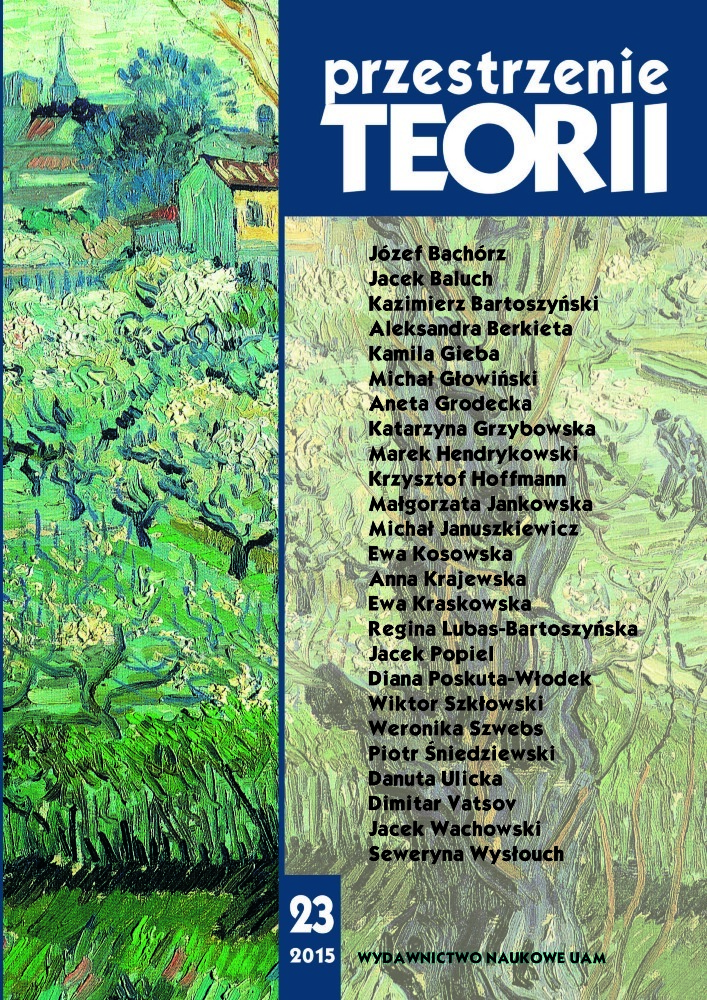Abstrakt
In contrast to Derrida and Butler, who overemphasized the subversive force of performatives, here the focus is on the immanent (micro-)sovereign power of performative utterances. Hence, what is proposed here is a search for the basic concept of power at the micro-level of speech acts. Before being codified with reference to certain stable power relations or contexts and before being objectified in different forms of domination and/or violence, power must be analyzed at the level of immediate performatives, where the struggle for power-codification could be followed in vivo. A task like this requires a conceptual shift: the illocutionary force of speech acts must be reinterpreted as their immediate evaluative force, i.e. as illocutionary power. Taking into account Derrida’s critique of Austin’s theory of speech acts, we should recognize that performatives are not singular or atomistic speech acts, nor are they pre-determined by certain already given contexts or procedures. They are embedded in a citation and trace signs, without any final or autonomous signification. And yet, performatives have a specific kind of sovereignty. It is not the sovereignty of the ‘act’ itself but of the act’s performance. The actual (in the sense of ‘ongoing’) performance has an immediate force that is irreversible and also non-citable. Even in the case of a direct citation, a citing performance sediments into an irreversible arrow, thus immediately reordering and re-evaluating all points in its trajectory. This performance does not fulfill a perspective, but it irreversibly forms a perspective. This effect of the virtuosity of an immediate performance could be called the power effect since it not only demonstrates how we make things with words, but also how we re-evaluate the things that were made through words. If an ongoing performance is such an immediate source of micro-power, then its role is not only to be ironically subversive and resistant to the already existing macro-codifications of power and domination. Performatives have their own sovereign power and are therefore capable of a direct affirmation and re-affirmation of the intersubjective frames of our experience.Licencja
Autorzy
Autorzy tekstów przyjętych do publikacji w czasopiśmie „Przestrzeniach Teorii” są zobowiązani do wypełnienia, podpisania i odesłania na adres redakcji umowy o udzielenie nieodpłatnej licencji do utworów, z zobowiązaniem do udzielania sublicencji CC.
Zgodnie z umową, autorzy tekstów opublikowanych w czasopiśmie „Przestrzeniach Teorii” udzielają Uniwersytetowi im. Adama Mickiewicza w Poznaniu niewyłącznej i nieodpłatnej licencji oraz zezwalą na użycie sublicencji Creative Commons Attribution-NonCommercial-NoDerivatives 4.0 International (CC BY-NC-ND 4.0).
Autorzy zachowują prawa do dalszego, swobodnego rozporządzania utworem.
Autorzy, którzy wykorzystują w swoim tekście cudze utwory (np. ilustracje, fotografie) proszeni są o dostarczenie do redakcji czasopisma zgodę na publikację od uprawnionych podmiotów.
Użytkownicy
Zainteresowani użytkownicy internetu uprawnieni są do korzystania z utworów opublikowanych po 2015 roku „Przestrzeniach Teorii” tylko w calach niekomercyjnych, pod następującymi warunkami:
- uznanie autorstwa - obowiązek podania wraz z rozpowszechnionym utworem, informacji, o autorstwie, tytule, źródle (odnośniki do oryginalnego utworu, DOI) oraz samej licencji;
- bez tworzenia utworów zależnych - utwór musi być zachowany w oryginalnej postaci, nie można bez zgody twórcy rozpowszechniać np. tłumaczeń, opracowań.
Do wszystkich tekstów opublikowanych przed 2015 r. prawa autorskie są zastrzeżone.
Inne
Uniwersytet im. Adama Mickiewicza w Poznaniu zachowuje prawo do czasopisma jako całości (układ, forma graficzna, tytuł, projekt okładki, logo itp.).
